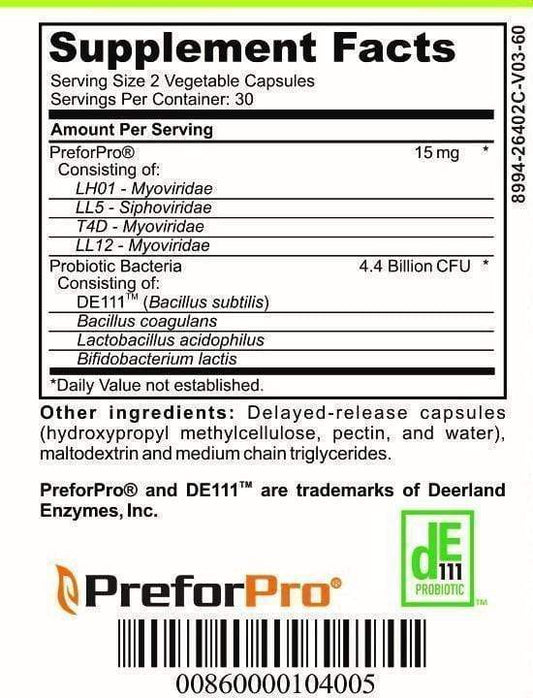Genova SIBO Testing 101
In recent years, there has been growing recognition of the impact that Small Intestinal Bacterial Overgrowth (SIBO) can have on digestive health. SIBO occurs when there is an overabundance of bacteria in the small intestine. This can lead to a wide range of symptoms and health complications. If you suspect you may have SIBO or are interested in learning more about this condition, this article will serve as a comprehensive guide to Genova SIBO Testing.
Understanding SIBO: An Overview
SIBO is a condition that occurs when there is an excessive bacterial population in the small intestine. Typically, the small intestine has a relatively low amount of bacteria compared to the large intestine. However, certain factors can disrupt the balance of bacteria, allowing them to overgrow in the small intestine.
When it comes to understanding SIBO, it is important to delve deeper into the intricacies of this condition. Small Intestinal Bacterial Overgrowth, commonly known as SIBO, refers to an abnormal increase in the number of bacteria in the small intestine. While a certain amount of bacteria is normal and even beneficial in the large intestine, having an excessive amount in the small intestine can lead to digestive problems and other health issues.
Now, let's take a closer look at the symptoms and causes of SIBO. The symptoms of SIBO can vary, as the condition can cause problems throughout the digestive system. Bloating, abdominal pain, diarrhea, constipation, and gas are some of the common symptoms experienced by individuals with SIBO. These symptoms can be quite distressing and significantly impact one's quality of life. In addition to these uncomfortable symptoms, SIBO may also contribute to nutrient deficiencies and malabsorption, further complicating the overall health of individuals affected by this condition.
Understanding the causes of SIBO is crucial in developing effective treatment approaches. SIBO can result from a variety of underlying conditions and risk factors. One of the key factors contributing to SIBO is impaired gut motility. When the normal movement of the intestines is disrupted, it can create an environment that is conducive to bacterial overgrowth in the small intestine. Structural abnormalities, such as strictures or adhesions, can also contribute to the development of SIBO by causing a disruption in the natural flow of intestinal contents.
In addition to impaired gut motility and structural abnormalities, certain medications can also increase the risk of developing SIBO. Medications that suppress stomach acid, such as proton pump inhibitors, can alter the pH balance in the digestive system, creating an environment that is more favorable for bacterial overgrowth. Autoimmune disorders, such as Crohn's disease or celiac disease, can also increase the likelihood of developing SIBO.
Furthermore, dietary factors play a significant role in the development and management of SIBO. Consuming a diet high in refined carbohydrates, sugars, and processed foods can provide an abundant food source for bacteria in the small intestine, leading to overgrowth. Additionally, food intolerances or sensitivities can contribute to SIBO by causing inflammation and damage to the lining of the small intestine, further disrupting the balance of bacteria.
Identifying the root cause of SIBO is crucial in determining the most effective treatment approach. By understanding the underlying factors contributing to SIBO, healthcare professionals can develop personalized treatment plans that address the specific needs of each individual. Treatment options may include dietary modifications, antimicrobial therapy, prokinetic agents to improve gut motility, and addressing any underlying conditions or risk factors.
The Importance of SIBO Testing
SIBO, or Small Intestinal Bacterial Overgrowth, is a condition characterized by an excessive amount of bacteria in the small intestine. While the presence of bacteria in the gut is normal, an overgrowth can lead to various health issues and complications. Therefore, the importance of SIBO testing cannot be overstated.
Early Detection and Treatment
Early detection of SIBO is crucial for effective treatment and prevention of further complications. By identifying SIBO early on, healthcare professionals can implement targeted interventions to rebalance the gut microbiome and address any underlying issues contributing to the condition.
One of the primary benefits of early detection is the ability to tailor treatment plans to the specific needs of the individual. SIBO can manifest differently in different people, and by identifying the specific bacteria causing the overgrowth, healthcare professionals can prescribe targeted antibiotics or antimicrobial agents to eliminate the problematic bacteria.
Moreover, early detection allows for the implementation of dietary modifications that can help manage SIBO symptoms and promote gut healing. By working with a registered dietitian or nutritionist, individuals with SIBO can develop personalized meal plans that minimize the intake of fermentable carbohydrates, which can exacerbate symptoms and fuel bacterial overgrowth.
Preventing Further Complications
If left untreated, SIBO can lead to a range of complications, including nutrient deficiencies, intestinal damage, and malabsorption. By diagnosing and treating SIBO promptly, healthcare professionals can help prevent these complications and improve overall digestive health.
One of the potential complications of SIBO is nutrient deficiencies. When bacteria overgrow in the small intestine, they can interfere with the absorption of essential nutrients, such as vitamins and minerals. This can lead to deficiencies that can impact overall health and well-being. However, by identifying and treating SIBO, healthcare professionals can help restore proper nutrient absorption and prevent deficiencies from occurring.
In addition, SIBO can cause damage to the lining of the small intestine, leading to a condition called leaky gut syndrome. Leaky gut occurs when the intestinal barrier becomes permeable, allowing toxins, bacteria, and undigested food particles to enter the bloodstream. This can trigger an immune response and contribute to systemic inflammation. However, by addressing the underlying SIBO, healthcare professionals can help heal the intestinal lining and restore gut barrier function.
Furthermore, malabsorption is another potential complication of SIBO. When bacteria overgrow in the small intestine, they can interfere with the normal absorption of nutrients from food. This can result in malabsorption, where the body is unable to properly absorb and utilize important nutrients. However, by treating SIBO and restoring a healthy balance of gut bacteria, healthcare professionals can improve nutrient absorption and prevent malabsorption-related complications.
In conclusion, SIBO testing is of utmost importance for early detection and treatment. By identifying SIBO early on, healthcare professionals can implement targeted interventions to rebalance the gut microbiome, prevent complications, and improve overall digestive health. Don't underestimate the significance of SIBO testing in maintaining optimal gut health!
Introduction to Genova SIBO Testing
What Makes Genova SIBO Testing Unique?
Genova Diagnostics offers a comprehensive and advanced SIBO testing panel that allows for accurate diagnosis and treatment recommendations. The Genova SIBO test utilizes advanced technology to detect and quantify the amount and types of bacteria present in the small intestine, providing valuable insights to healthcare professionals.
When it comes to diagnosing and treating small intestinal bacterial overgrowth (SIBO), Genova Diagnostics stands out from the crowd. Their SIBO testing panel is designed to provide healthcare professionals with accurate and reliable information, allowing them to develop targeted treatment strategies for their patients.
Unlike other testing methods, Genova SIBO testing goes beyond simply detecting the presence of bacteria in the small intestine. It also quantifies the amount and types of bacteria present, giving healthcare professionals a more detailed understanding of the patient's condition. This comprehensive approach allows for more accurate diagnosis and personalized treatment recommendations.
The Science Behind Genova SIBO Testing
The Genova SIBO test relies on the measurement of hydrogen (H2) and methane (CH4) gases produced by bacteria in the small intestine. This non-invasive breath test provides objective data regarding the presence and overgrowth of bacteria, allowing for targeted treatment strategies.
But how does this testing method work? When a patient undergoes the Genova SIBO test, they are given a solution to drink that contains a specific type of sugar. This sugar is not digested by the body but is instead fermented by bacteria in the small intestine. As the bacteria ferment the sugar, they produce hydrogen and methane gases.
The patient then breathes into a collection device at specific intervals after drinking the solution. The collected breath samples are then analyzed to measure the levels of hydrogen and methane gases. Elevated levels of these gases indicate the presence of bacteria in the small intestine and can help healthcare professionals determine the severity of the overgrowth.
One of the advantages of the Genova SIBO test is its ability to detect both hydrogen and methane gases. While most SIBO tests only measure hydrogen, the Genova test also measures methane. This is important because some individuals may have an overgrowth of bacteria that primarily produces methane, rather than hydrogen. By measuring both gases, the Genova test provides a more accurate assessment of the bacterial overgrowth.
In addition to measuring the gases produced by bacteria, the Genova SIBO test also identifies the specific types of bacteria present in the small intestine. This information is crucial for developing targeted treatment strategies. Different types of bacteria may require different approaches in terms of diet, medication, and other interventions. By identifying the specific bacteria, healthcare professionals can tailor the treatment plan to the individual patient's needs.
The Genova SIBO Testing Process
Preparing for the Test
Prior to the Genova SIBO test, certain dietary and medication restrictions may be necessary to ensure accurate results. Your healthcare provider will provide you with specific instructions on how to prepare for the test, including dietary modifications and medication adjustments.
When it comes to dietary modifications, you may be asked to avoid certain foods that could potentially affect the results of the test. These foods may include high-fiber foods, such as beans, lentils, and whole grains, as well as certain fruits and vegetables that are known to cause gas, such as broccoli, cabbage, and onions. Additionally, you may need to refrain from consuming certain types of carbohydrates, such as lactose and fructose, as they can also impact the test results.
Medication adjustments may also be necessary before the Genova SIBO test. Your healthcare provider may ask you to temporarily stop taking certain medications, such as antibiotics or medications that affect the gastrointestinal system, as they can interfere with the accuracy of the test. It is important to follow your healthcare provider's instructions closely to ensure reliable results.
The Testing Procedure
During the Genova SIBO test, you will be provided with a test kit that includes breath collection tubes. Following the preparation phase, you will collect breath samples at specific intervals. The samples will be sent to a laboratory for analysis, where the amounts of hydrogen and methane gases will be measured and interpreted.
Collecting breath samples is a simple and non-invasive process. You will be instructed to breathe into the collection tubes at designated time points, typically before and after consuming a specific substrate, such as lactulose or glucose. These substrates are used to stimulate the production of hydrogen and methane gases by the bacteria in your small intestine. By measuring the levels of these gases in your breath, the test can determine if you have SIBO.
Once you have collected all the required breath samples, you will carefully seal the tubes and send them back to the laboratory for analysis. The laboratory technicians will use specialized equipment to measure the concentrations of hydrogen and methane gases in each sample. These measurements will then be interpreted by healthcare professionals to determine if you have SIBO and to what extent.
The Genova SIBO test is a valuable diagnostic tool that can provide important insights into your digestive health. By following the preparation instructions and collecting accurate breath samples, you can ensure reliable results that will help guide your healthcare provider in developing an appropriate treatment plan for you.
Interpreting Genova SIBO Test Results
Understanding Your Test Results
After completing the Genova SIBO test, you will receive a detailed report that includes your test results. This report will outline the levels of hydrogen and methane gases detected during the test, as well as any other relevant information. It is important to review these results with your healthcare provider to determine the appropriate treatment plan.
Next Steps After Receiving Your Results
Once you have received your Genova SIBO test results, your healthcare provider will work with you to develop a personalized treatment plan. This may involve a combination of dietary modifications, targeted antimicrobial therapy, probiotics, and other interventions designed to rebalance the gut microbiome and optimize digestive health.
In conclusion, Genova SIBO Testing offers a comprehensive and reliable approach to diagnose and manage Small Intestinal Bacterial Overgrowth. By understanding the science behind SIBO and the importance of early detection, individuals can take proactive steps in addressing this condition and achieving optimal digestive health.
























